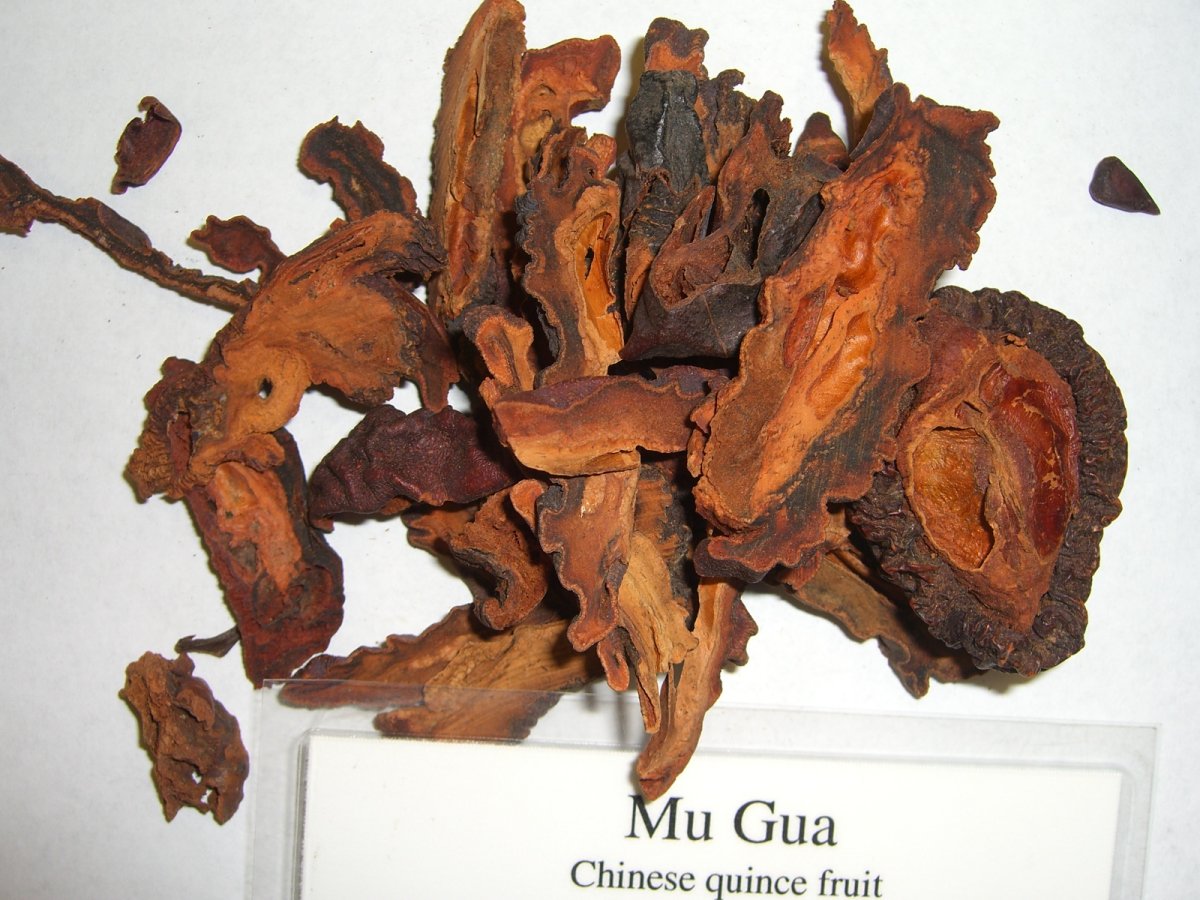Mu Gua

  | Mu Gua in TCM:Explore the properties of Mu Gua according to Chinese
Nutrition and Traditional Chinese Medicine (TCM):
Factoids:
Common Name: unripened papaya (dried and prepared)
English Name: chaenomeles, papaya
Pharmacuetical Name: Fructus Chaenomelis
Properties: sour, warm
Temperature: warm
Channels: SP, LV
Flavors: sour
Special Properties:
clears damp, disperses wind, resolves food stagnation, alleviates bi syndrome
Actions / Indications:
- Relaxes sinews; opens channels (wind damp bi in extremities;
weak and atrophied muscles; swollen joints; cramping and weakness in
back and lower extremities, cramping of calves and edema due to leg
qi)
- Harmonizes Stomach; resolves damp (abdominal pain;
spasms due to excessive vomiting or diarrhea)
- Reduces food stagnation (poor appetite; fullness;
epigastric distension - stimulates gastric juice secretion)
- (cc: caution w/ stomach acidity)
Special Notes:
- Mu Gua contains digestive enzymes which can help to control diarrhea
by binding the intestines (especially for patients with weak digestion
who get diarrhea immediately after consumption of greasy, cold or raw
foods.
- Degenerative Gastritis: Mu Gua has been used because of its sour taste
to help restore the function of astrophy of the gastric glands (to promote
gastric juice secretion).
Contraindications:
- (cc: caution w/ stomach acidity)
Disclaimer: In accordance with our terms of service, by using this web site you agree that none of the information found on this web site constitutes medical advice. You should always consult your doctor before trying any particular food or herbal remedy to treat disease.
Folk remedies presented on this site are designed to address specifc TCM diagnoses, and are not one-size-fits-all. If you would like to learn more about Traditional Chinese Medicine (TCM) and how it relates to Chinese Nutrition, you can book in a free call with a licensed professional. There is no obligation to purchase.
[CLICK HERE for your free INITIAL CONSULTATION] |

